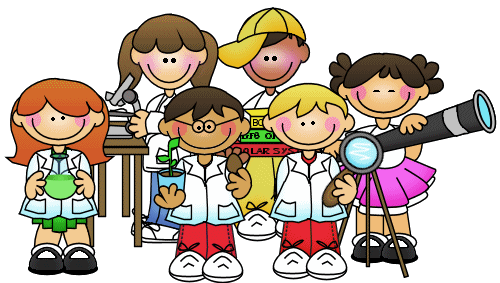| Author |
Post |
|
|
|
|
I am looking for science professional development that has some focus in the special education direction. Does anyone know of any PD that speaks to both? I would love to find something both free and useful in early elementary - I know I'm asking a lot. 
|
|
|
|
|
|
I read through all the post and I think all resources would definitely give me ideas if I would teach science for special education
|
|
|
|
|
|
I am also interested in this topic. I have been co-teaching that few years, and I love it! When co-teaching is done right, it is a fun experience for both students and teachers. I am considering gaining an endorsement in special education. As our classrooms become more inclusive - or as "pull-ins" become more common - every teacher will need to learn how to work with the special education population. I have also found that many of my students - my non-diagnosed or mainstream kids - benefit from modifications I make for the students with special needs.
I made a small collection of resources I found in the Learning Center, and I have attached it to this thread. I will continue to add to the collection as I find more resources.
Special Education and Science Collection
(7 items)
|
|
|
|
|
|
Thank you so much for posting these resources! I am finding them especially useful while planning lessons to consider the needs of students with disabilities.
|
|
|
|
|
|
Thank you Susan for the resources you have made available to us.
|
|
|
|
|
|
I am a special education preservice teacher and I would like to learn more about science in special education.
|
|
|
|
|
|
Thank you for sharing the resources with us Ms. Susanne!
I am a pre service teacher and I am looking for great opportunities to learn more in science in special education. Please let me know if there is anything out there that may further my education.
|
|
|
|
|
|
Hi there -
Thank you for sharing the resources Sue!
I am teacher with certification in Special Ed, Gifted Ed and Earth Science. I love co-teaching and am half of an ICT partnership that teaches Regents Earth Science in New York. I have taught science for gifted and talented elementary students and developed and presented curriculum as a push in and pull out for all populations at the elementary level.
Finding quality professional development specifically for special education in science can be difficult.
Some of the best approaches I have found are to look at UDL (Universal Design or Learning), everything put out by BSCS and MI (multiple intelligences).
UDL has its own following and professional development website with free webinars, self paced coursework and links to f2f training etc.
http://castprofessionallearning.org/http://castprfromhttp://castprofessionallearning.org/
BSCS http://www.bscs.org/http://www.bscs.org/
has wonderful curriculum guides and specializes in middle school level that is easily adaptable up or down. There are always BSCS workshops ad short courses at the NSTA National Conference and resources readily available online.
Another idea to look at is the use of cooperative classroom setup. Most of us have done some teaching in a cooperative or collaborative style. Common Core and NGSS encourage students working in groups with heavy emphasis on discussion.
The absolute masters of cooperative education theory are David and Robert Johnson from the University of Minnesota. If you can possibly find a training (typically 3 days to a week) done in your area by someone trained by the Johnsons, go. If you can get to the University of Minnesota summer institute with the Johnsons themselves -GO. Just drop everything and GO. Their website is here: http://www.co-operation.org/http://www.co-operation.org/
|
|
|
|
|
|
The annual Science Education for Students with Disabilities (SESD) Conference will be held on Wednesday, March 11, 2015 from 9:00 a.m. - 4:00 p.m. at the Hyatt Regency McCormick Place, 2233 South Dr. Martin Luther King Jr. Drive, Chicago, IL.
This day-long workshop, which is held in conjunction with the National Science Teachers Association (NSTA) national convention, focuses on inclusive science education practices that promote quality science opportunities for all students. Come join us for this interactive and informative day!
The SESD workshop is FREE, but pre-registration is required and space is limited.
Please click on the link below to learn more about the conference and to register.
https://docs.google.com/forms/d/1Mtdsx4GNV5K9TBv9vTGVBHzLdAZQvWS9HSUOQLjaues/viewform?usp=send_form
I hope to see you in Chicago!
You can forward this message to science teachers, special education teachers, or others with interest in inclusive science practices.
If you have any questions about the SESD conference, feel free to email me.
Best wishes,
Rachel
Rachel Zimmerman Brachman
President, Science Education for Students with Disabilities
SESD Conference Co-Coordinator
[email protected]
|
|
|
|
|
|
The NSTA also has some great resources for science teachers who teach students with special needs, here:
http://nsta.org/disabilities/
For more information about the organization "Science Education for Students with Disabilities", you can also visit:
http://www.sesd.info
SESD also has a Facebook page, here:
https://www.facebook.com/groups/240188879337184/
I hope this helps!
Best wishes,
Rachel
|
|
|
|
|
|
Thank you for the resources. I struggle with this because I want to do so much for my students, but sometimes it seems that our students get help in RLA and Math while they forget Science. I have been curious as to research that is our there trying to bridge the gap in Science Education and Special Education. What a passion of mine!!
|
|
|
|
|
|
Thank you all for posting these links and information. I am also a preservice SPED teacher and have found these resources very useful for my students.
|
|